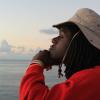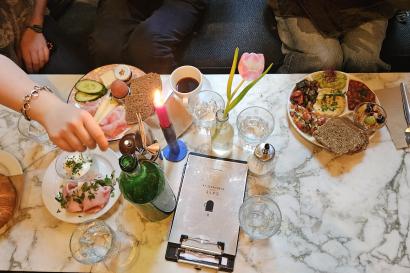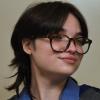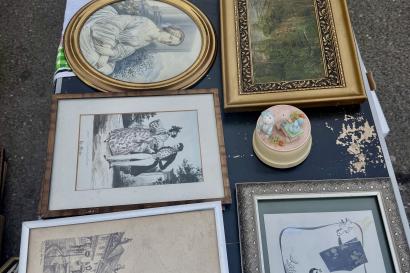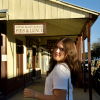Thursday, April 25th, 2016 20:08
Plaza Nueva, Granada
It has been hard for me to put into complete sentences just how incredible my time in Morocco was. Although our trip was only five days long, I feel as though I was able to experience a chunk of the culture that short travel usually does not offer. With so much to take in and so much to reflect on, the experience itself feels like a distant memory, a mirage, hiding behind visible heat waves and forever subject to the recesses of my memory. Although out of tangible reach, the remnants of the trip, reduced to conversations, journal entries, and reflections, will forever be with me. What is culture? A question I began to ask myself as I was thrust into a world in which bares many similarities to that of my own, but with distinct nuances in social organization, norms, and language. A space that is often subject to a condescending lens, critical in its comparisons to places more technologically advanced that tout varying amounts of economic success aesthetically. A space that often is misconstrued as an unhealthy environment and somehow fundamentally and morally inferior due to the predominant religion of the people who inhabit it. It’s a world that I sought and seek to learn more about, stripping down structures and systems and relationships to their bare existences and juxtaposing them with those in my own society. It was in Morocco that I learned and witnessed peace, love, and community more than I have anywhere in my life. It was in Morocco that I could confirm that our differences truly aren’t so different, and that which forces us apart, should be that which brings us together.
Underneath a beating North African sun Islamic architects constructed medinas, quadrants of history etched into modern day cities like ghosts of the past. These narrow, labyrinths serve as marketplaces and living spaces with their intimacy evidenced by streets often too narrow for couples to pass through let alone automobiles. Organic, authentic, handmade, and natural products hang from windows, walls, and doors often absent of price tags while cooked spices permeate the dry air, wafting around corners and out of houses to passerby. Although we could have dizzied ourselves for hours in these lively spaces of history, our travels took us outside of the walls of the medina, exposing urbanized portions of cities, akin to that of colonized cities in every other part of the world. Like a futuristic mutation of urban living in comparison to the medinas, these developments expanded across much larger areas, before revealing hilly African landscapes much tamer than that of Andalucía. A profusion of languages echo off of city walls from familiar English jargon to the much throatier, elegant Arabic dialect spoken in Morocco including daily calls to prayer, audible five times a day. Wherever we ventured we were greeted by smiling men who offered us their livelihood with their right hands placed across their chest, children grinning from ear to ear practicing English or Spanish or French and even teaching their native tongue, and an open community eager to share their experiences with us. Groups of teenagers and students of the university shared similar hobbies in interests and reasons for concern, again, baring similarities to the relationships and behaviors of the friends that I grew up with. Deeper conversations and interactions with host families offered us a looking glass view into daily routines, traditional meals, and communal customs. Entering this world firsthand was truly an incredible experience, but also left me with a few nagging thoughts.
While we were able to engage in opportunities that most travelers and tourists would not in our short trip, we were still very clearly American in our demeanor, from dress to language. As we maneuvered through medinas and rode camels and bartered our way through Morocco we were surrounded by a westernized bubble of thoughts and actions, clearly identifiable as outsiders. Whether we approached this trip with expectations or none, each one of us experienced something unique. For me, I battled with concepts of acceptance and community, something that I felt strongly from the moment we arrived in Tangier. They welcomed me home, calling me “Mr. Barack Obama, Evander Holyfield, and even Tupac,” offering me lower prices, food, and places to stay whenever I should return. I struggled with the altered social structure, which sometimes visibly granted different rights to men and women in terms of use of public space and acceptable clothing. I struggled with my own Americanness that allowed me to slip across the physical border into Spain that many can see every single day but can never go. I struggled with myself, welded into a social reality that places more value in capital than community from birth, yet somehow absent of some of the happiness and perseverance that radiated off of the people I met, unable to determine where I fit in. And not to be misunderstood, social problems and conflicts were still highly visible, from poverty markers and socio-political commentary stained on walls with cans of spray paint, to conflicting views of the monarchy, homosexuality, and adherence to religion. But in a unique manner, the people persevere. The society adapts to that which it is subject to, including political structure, religious norms, and acceptable behaviors. It was worn on the smiles and clung on the words of every sentence that I heard, and it was shared selflessly between neighbors and strangers alike.
Although I left Morocco feeling like I witnessed the similarities that we truly all share, all differences aside, I hope that the lessons learned on this trip will carry on with me forever. During a brief discussion of our personal experiences in Chefchaouene I was speechless, perhaps still collecting my own thoughts, but also intently listening to what others had to say. While it seemed as though this trip had an impact on each individual, I wonder how it will influence us as well. I’m not saying that everybody was fortunate enough to have a positive experience, I just hope that if we indeed felt and realized that we are all the same, that we prove that with our actions. As Americans, we are privileged enough to travel the world, collecting images and anecdotes to describe the worlds we don’t live in. But also as Americans we have the unique opportunity to synthesize these experiences and not only tell stories, but to share what we learned. Not to interpret but to portray. To portray a reality that bears striking similarities to that of our own, merely grounded in values that are slightly altered and different from our own. We are all the same on the inside both individually and socially, and I only hope that our constructed differences don’t get in the way of our ability to see that.
Highlights:
The whole trip may have been the most incredible 5 days of my life and it would be hard to summarize the whole experience into a highlights. A quote however really struck me in particular:
“Religion should come from the heart.”
To me, this transcends anything that any religious text or ceremony I have ever encountered. The man who said this lives his life selflessly, in rural Morocco, working for his family and the betterment of his country. Driven by love and sense of community, he was not bound by stereotypes or anything of the sort. And to me, that is beautiful.
Mistakes:
Expecting that this trip would not leave me with unrelenting thoughts challenging identities and social structures that I could not possibly imagine without experiencing them first hand.
Moving Forward:
This trip wet my already enormous appetite for travel and language, leaving me to feel as though I want to see every corner of the world and experience everything that is culture. Not for merely for personal pleasure, but to better understand and live in an open and welcoming global community.
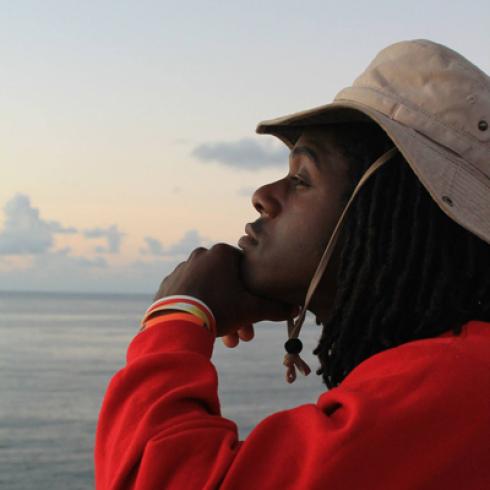
Tre Nowaczynski
A sociology major at Macalester College in St. Paul, Minnesota born in Milwaukee, Wisconsin. At school I am a two-sport varsity athlete, sing and beat box in an a cappella group on campus and volunteer in the Twin Cities area. In the future I hope to develop and create safer and more integrated communities, creating equal opportunities in urban centers across the US. Specifically I seek to work against structural racism by reducing disparities that are current outcomes of our social systems. This study abroad experience is a time to reflect and immerse myself in an entirely different world beginning first and foremost with a language barrier. I hope to be successful academically and socially as well as learn a lot about myself and the world around me.


